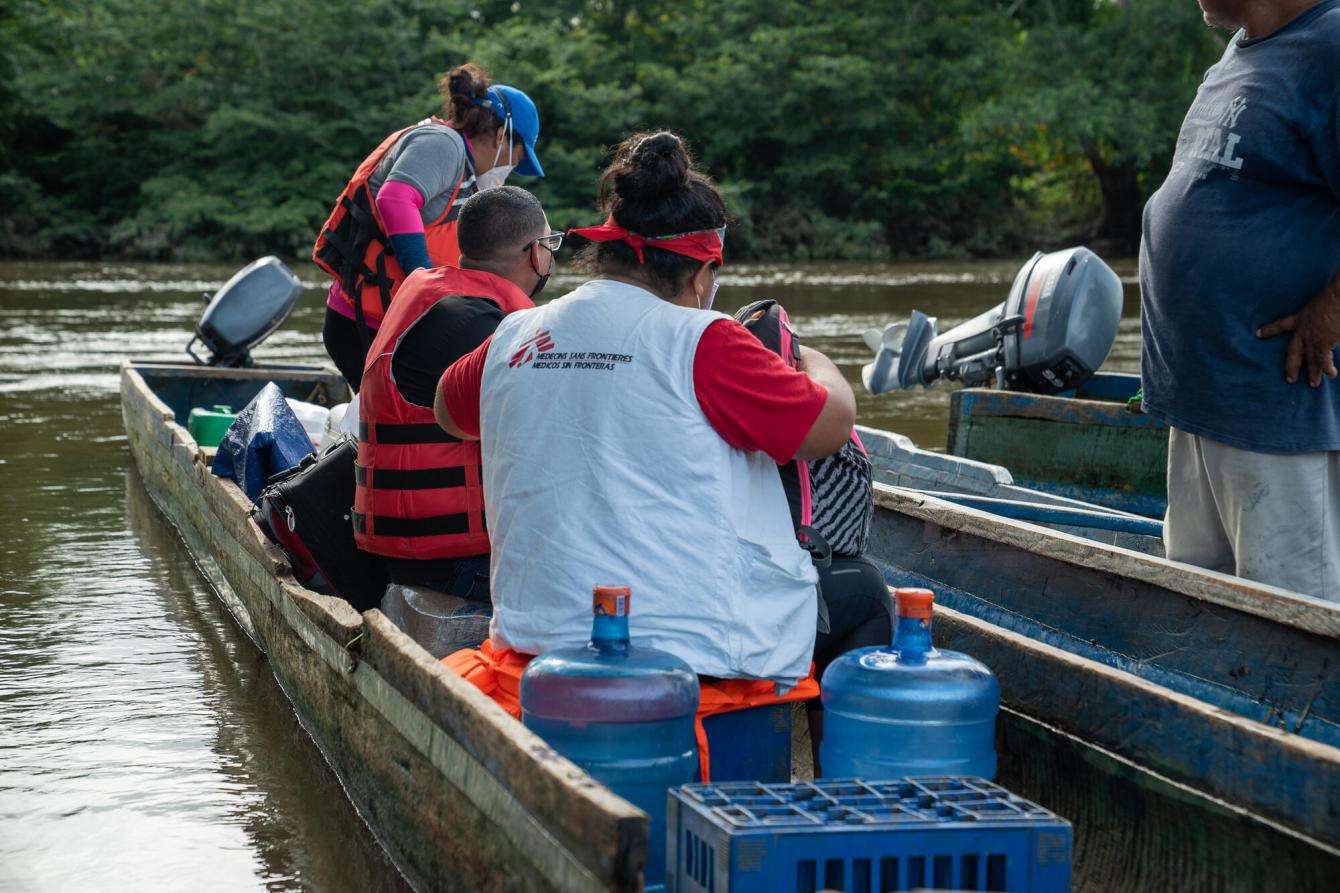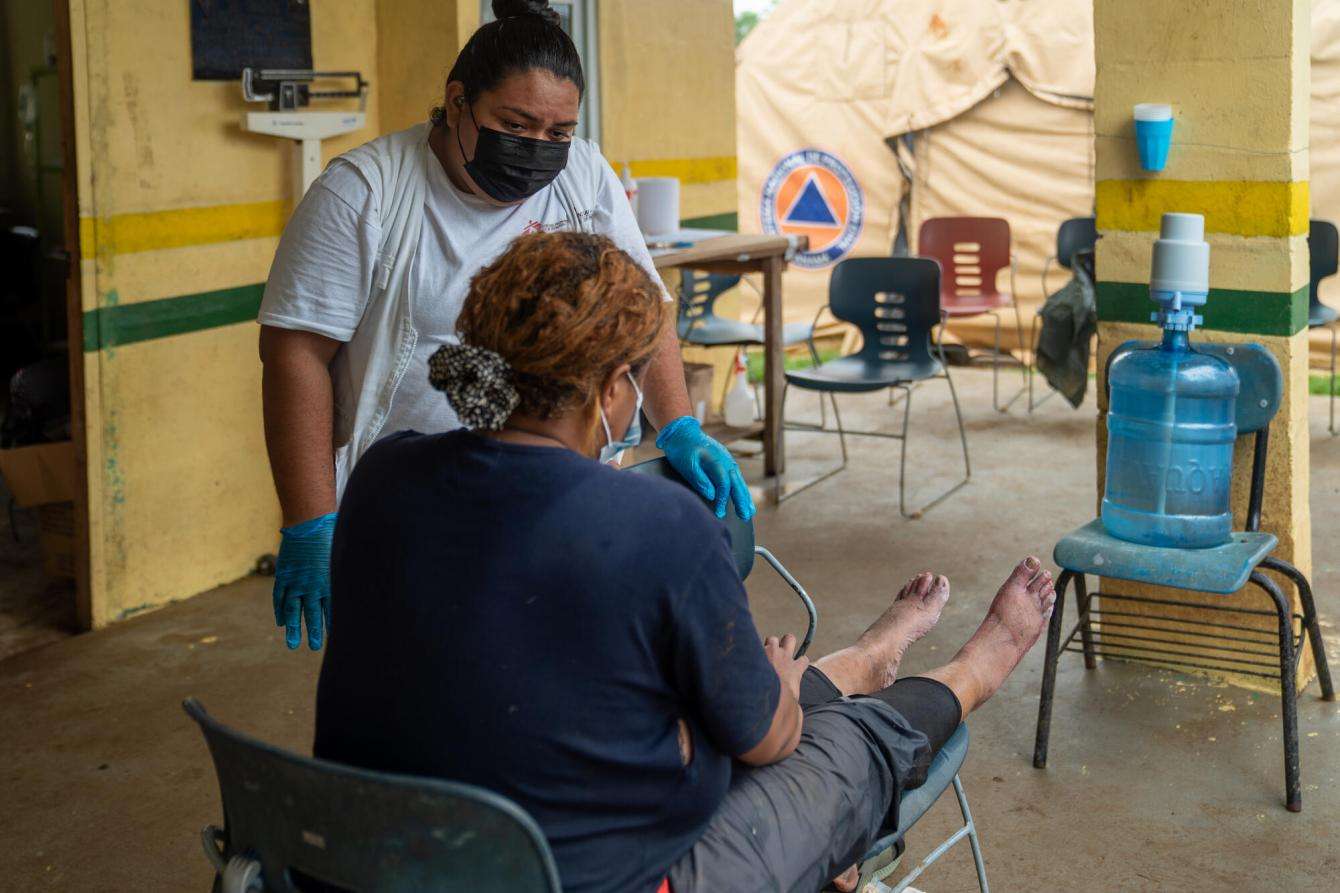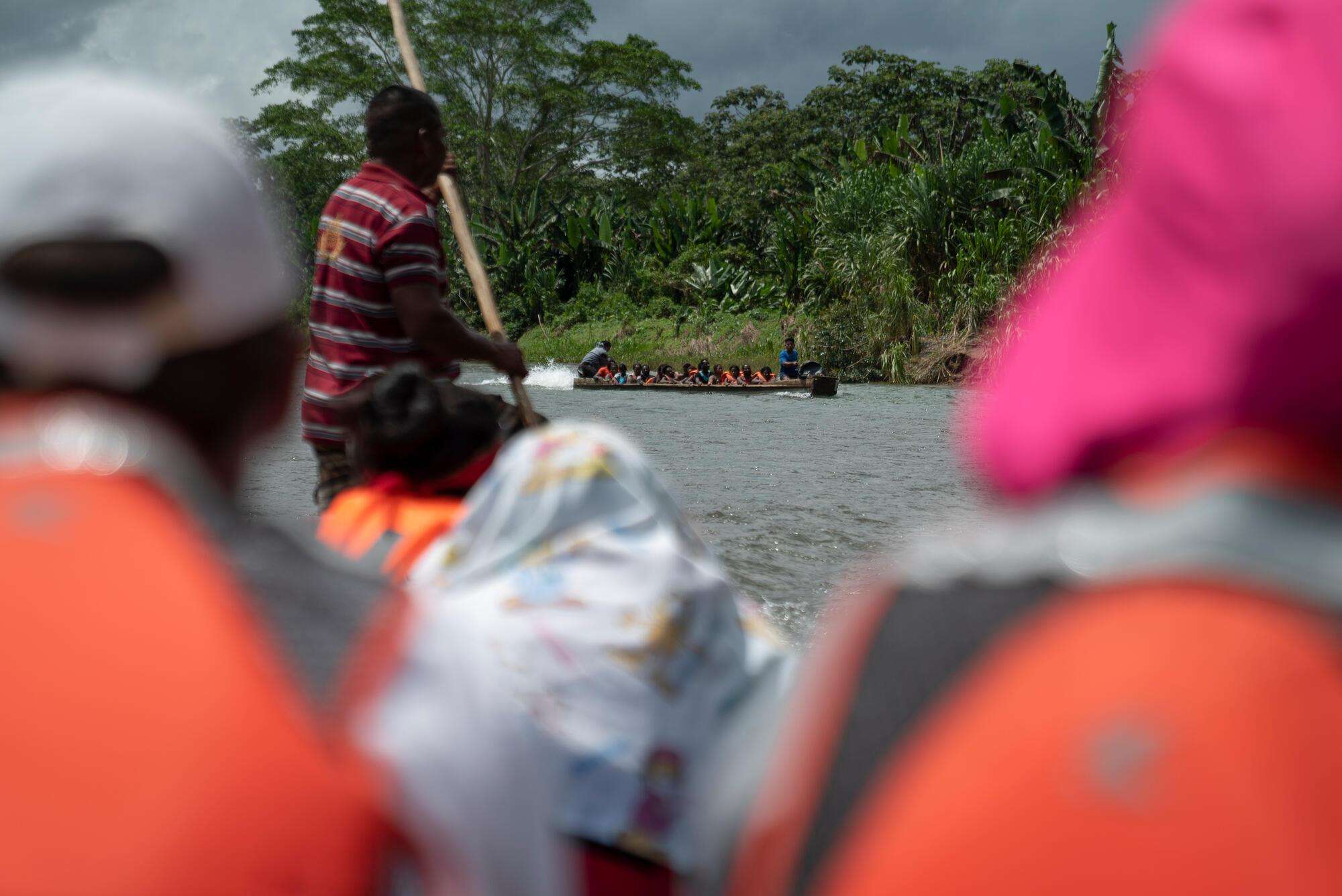“The jungle doesn’t want to let you go,” says 49-year-old Alejandro, who fled political and socioeconomic turmoil in Venezuela three months ago. He stopped first in Medellín, Colombia, but could not find work, so decided to migrate north to the US. It took Alejandro 10 days to reach Panama through the Darién Gap—a forested, mountainous, roadless region that connects North and South America. “You do not know which path to choose. You choose one and after a while you find yourself back where you started." He sits with his feet elevated to reduce the swelling caused by the rough terrain.
Much of South America is reeling from the economic consequences of the COVID-19 pandemic. It’s the main reason tens of thousands of people, primarily from Haiti, Cuba, and Venezuela, are risking their lives on this dangerous route north. In June, 11,000 migrants entered Panama from Colombia—the highest figure recorded this year despite it being the rainy season, the most dangerous time to cross the Darién Gap.

In May, Doctors Without Borders/Médecins Sans Frontières (MSF) opened programs in Bajo Chiquito—the first village that migrants reach in Panama—and at the migrant reception stations in Lajas Blancas and San Vicente to respond to the crisis. Since then, our teams have provided medical and mental health care to more than 14,000 people who have crossed The Darién Gap. In July alone, our small team of 15—including medical, mental health, and logistical personnel—provided 6,000 consultations. Most people require treatment for trauma wounds, skin conditions, and foot injuries caused by the treacherous journey across wet, muddy, and steep terrain.
“I thought we were going to die”
“We thought it would take four days to cross the Darién, but it took 11,” says Nadine, a 40-year-old woman from the Dominican Republic who was living and working as an undocumented migrant in Chile with her six-year-old daughter, Ania, and her partner. They were barely a day and a half’s trek from escaping the Darién Gap when Nadine and Ania ran out of strength and could not take another step. Their feet were badly swollen. Nadine's partner decided to seek help. Nadine and Ania were alone for three days. "I thought we were going to die. Many people die there." Fortunately, with the help from the Bajo Chiquito community, her partner rescued them in canoes.

Many of the people who survive the journey across the Darién Gap are haunted by the thought of those who were left behind—those with injured feet or broken bones, too exhausted and too weak to continue, who wait for rescue or aid that may never arrive.
“I saw at least 10 dead bodies in the jungle,” recalls 19-year-old Angel. “But the worst is the people who get left behind—people who cannot climb the mountains or who slip in the rain and mud. It is a route where nobody waits. You see people sitting down, injured, who might have been there for days, waiting for death.” Angel left Venezuela four years ago and has been working in Cali, Colombia. Like many migrants who have arrived in Panama since the start of the pandemic, Angel could no longer work and decided to head towards the US.
“We were assaulted twice”
MSF psychologists help migrants cope with the traumatic incidents they witness or experience in the Darién Gap. Since May, we have provided 411 individual and 154 group mental health consultations. Patients often tell our staff about finding the corpses of people who have suffered fatal falls or drowned in swollen rivers.
“This is a nightmare with 1,001 demons,” says 40-year-old Oscar, who is from Colombia but was living in Bolivia. “I saw a child get dragged down the river when he let go of his parents’ hands. I have seen dead bodies, drowned, four of them. I have smelled corpses decomposing in the ravine." Oscar was lost for 14 days in the Darién Gap but managed to escape after following the tracks of previous groups.
MSF patients also report being targeted by criminal gangs who assault and rob them, stealing their belongings and even their food. "Some were dressed in black, with shotguns, others wore balaclavas and had rifles and knives,” says Oscar. “They raped three of the seven women in our group. We were assaulted twice by different gangs."

MSF also provides care to survivors of sexual violence—88 women have reported being sexually assaulted or raped during robberies. “You see dead bodies, you go hungry and you get raped," says 21-year-old Solange from Cuba. Solange narrowly escaped assault by running away when she realized her group was about to be attacked. “Those in the group, they heard the screams of those who were raped."
“Don’t do it, it’s terrible”
The future is uncertain for everyone in Bajo Chiquito, where access to clean water, showers, and decent toilets is limited or, for some, nonexistent. Eventually everyone will be transferred to the reception stations in San Vicente and Lajas Blancas, but from there they will have to make their own way forward. Some migrants can afford to buy a bus ticket north, but many cannot. And certain nationalities—including Colombians, Ecuadorians, and Bolivians—are held for processing and then deported.
Those who have pending administrative or judicial processes—for example, if they are seeking refugee status in Panama or are witnesses in a case against traffickers—are held at migrant reception stations for weeks or months. Detained people describe inadequate food and shelter, a lack of clean water and showers, and no way to communicate with their families.
But despite the risks, people continue to attempt the journey. By the end of July, around 8,000 migrants were waiting in Necoclí, Colombia, to start their trek through the Darién Gap. “They warn you from the US: ‘Don’t do it, it’s terrible,” says Juan, whose group was assaulted by a group of men with rifles and machetes. They took their money, mobile phones, and food, and raped the women in the group. “But you have to. And you think, ‘If he did it, why can’t I do it?’ But honestly, don’t do it, it’s terrible.”
A lack of safe and legal routes for migrants forces them to take dangerous ones where they are exposed to violence and trauma. MSF repeats its demand that the governments of Colombia and Panama establish safe alternative routes between the two countries and deploy the necessary protection mechanisms in their territories to prevent more needless death and suffering.




